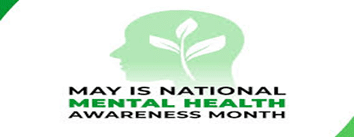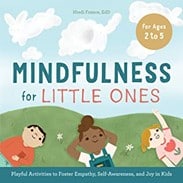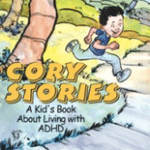By Alexis Turan, Access & Inclusion Intern

Over the past 20 years, the Substance Abuse and Mental Health Services Administration and others within the U.S. Department of Health and Human Services and across the Federal Government, the public health community, and the general public have made efforts to increase the importance of understanding both prevention and treatment of mental health problems. These efforts have significantly improved the outlook for those affected by mental illnesses.
With the weather beginning to get nicer, the sun shining and flowers blooming, May is the perfect time to start working on practicing mental health awareness. Self-care is essential for mental health and overall well-being. Often unseen and untreated, child and adolescent mental health challenges can impact the ability to learn and develop. The Substance Abuse and Mental Health Service Administration released that one in five children have a diagnosable mental, emotional, or behavioral disorder. Centers for Disease Control and Prevention conducted research that links students’ mental health and their academic success. Therefore, awareness of mental health to support our children and students should be a core part of every family’s school preparation.
Here are some helpful ways as a parent or guardian that you can support your child’s mental health!
- Model healthy coping skills. Activities such as deep breathing, using stress balls, making art (painting, coloring, doodling) or going for walks can be great strategies for coping with feelings.
- Keep communication open and honest. It’s important that your child knows they can approach you with any issue, and that they will be received and listened to with love and support. Simply letting them know that you are there to support and listen to them without judgment.
- Create a routine. Uncertainty about day-to-day schedules can lead to a lot of stress or anxiety in a child’s life. Creating a general routine at home can provide some relief and peace for your child.
- Provide positive feedback and encouragement. Kids love to receive positive feedback and learn that they’ve done something well. Knowing they’ve done something well increases feelings of pride and confidence, which can stick with a child long term.
- Talk about emotions and feelings regularly. Kids learn so much by watching their parents, including behaviors when it comes to emotional expression and regulation. Rather than simply saying your day was “good” or “OK,” try to discuss different emotions you felt throughout your day when talking with your child and then talk to them about how you handled your emotions in that situation
In addition here are some books and resources used in this article that you can also utilize at home:
- Cory Stories by Jeanna Kraus is a book about ADHD with emphasis on why it shouldn’t define them.
- Be Happy: A little book of mindfulness by Maddy Bard is a guide for helping young children boost their self-confidence, canine best friends Hucky and Buzz share some tips on staying present and positive as they share thoughts, emotions, and feelings with each other.
- Mindfulness for Little Ones by Heidi France. This book helps children move toward healthy coping skills and behaviors with playful, developmentally appropriate activities.



18 Coping Skills: Strategies for Children and Teens
Books to Help Kids Understand Their Emotional and Mental Health
